PULLMAN, Wash. — Alyssa Hansten is a graduate student at the School of Food Science, focusing on understanding the antimicrobial properties of kefir.
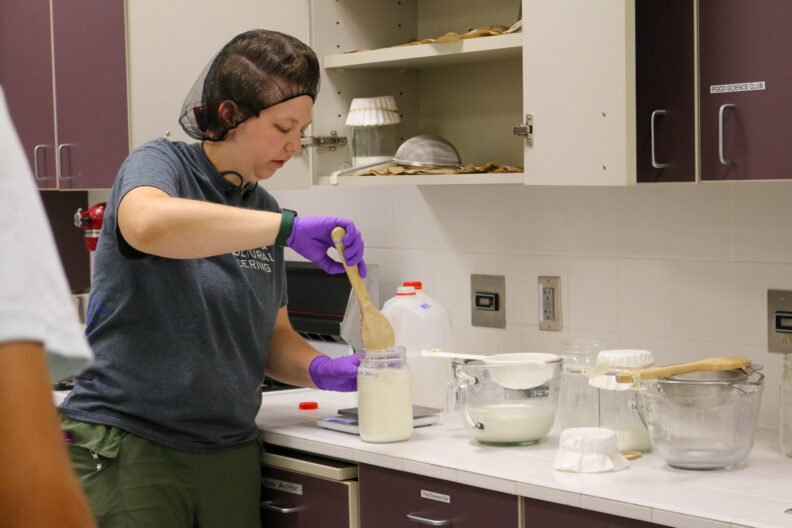
Would you mind telling me about your background – professional and/or personal?
I grew up in Jerome, Idaho. I was active in 4-H and FFA growing up, and when I got close to graduating high school, I didn’t really know what I wanted to do with my life. I knew I loved engineering and biology, and so I pursued biological engineering at the University of Idaho for my bachelor’s degree. Upon finishing my degree, I realized I didn’t want to go live on the East Coast, which threw biomedical engineering out the door, since that’s pretty much in the heart of Boston and Texas. I still questioned what I wanted to do with my life, and really debated between going back into agriculture, where I had a deep-rooted love and passion or continuing with a biomedical focused career. When I finished my engineering degree, I thought medical school might be where I want to go, but I didn’t want to commit $200,000 of debt right out of the gate and then get through it and go, “not for me.”
I went and worked as a medical assistant and scribe at one of the local hospitals in Moscow, and I got about five months into it and went, “this is very monotonous, it’s the same thing over and over and over, even as I was working directly with the providers.” I had what I’ve jokingly called my quarter life crisis phase one, and I was like, “I don’t want to do medicine, so what am I going to do now?” The more I thought about it, I realized I wanted to go back to my love of agriculture and food science, which was what my experiences in FFA and 4-H had given me.
I decided to pursue graduate school to try and figure out how to pivot this degree that I already have and fill in my gaps of knowledge of the food processing industry. Now, I’ve just finished my first year of my master’s and now working on my second one, so that’s exciting.
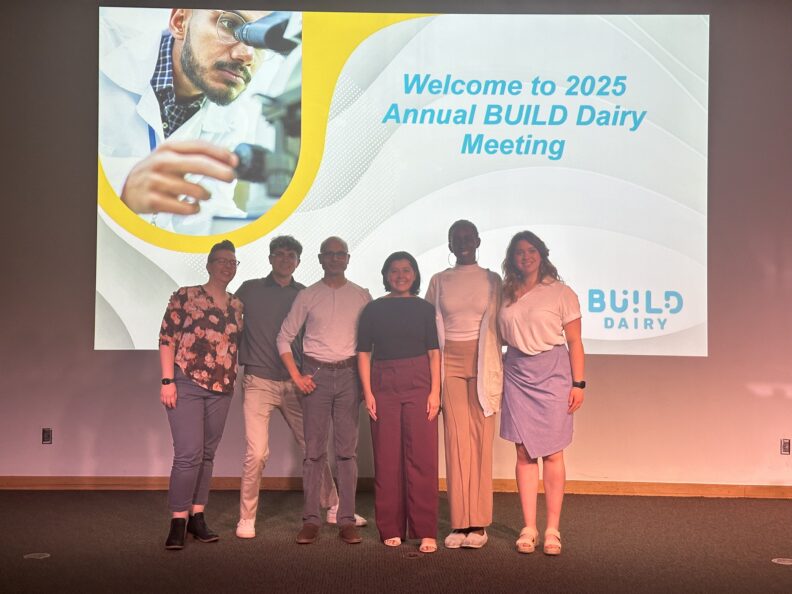
What made you choose WSU to pursue your masters?
When I wanted to go to graduate school, I wanted to focus on dairy and fermentation, so I started looking for faculty who study both of those aspects. I also wasn’t thrilled about the idea of leaving the Moscow/Pullman area when I went looking. I really didn’t want to rebuild my life after integrating into the Moscow community while working.
That’s when I happened to find Dr. Ünlü when she was still listed at the University of Idaho, and I reached out to her to see if she was looking for another graduate student. She told me she was moving to WSU and so I applied here as well. It was better for me because then my master’s and my bachelor’s degrees are from two different universities, and most people don’t realize they’re ten miles apart… It’s a happy medium for me here.
What has been your favorite memory of yours during your time here at WSU?
I always loved the Moscow brew fests and getting to try the unique brews and the community that comes with it. Another thing I have enjoyed at WSU is getting to connect with everyone in the other labs… the dynamic of supporting each other, whether it’s through research or personal lives is great. It’s nice knowing there’s someone who gets what you’re struggling with.
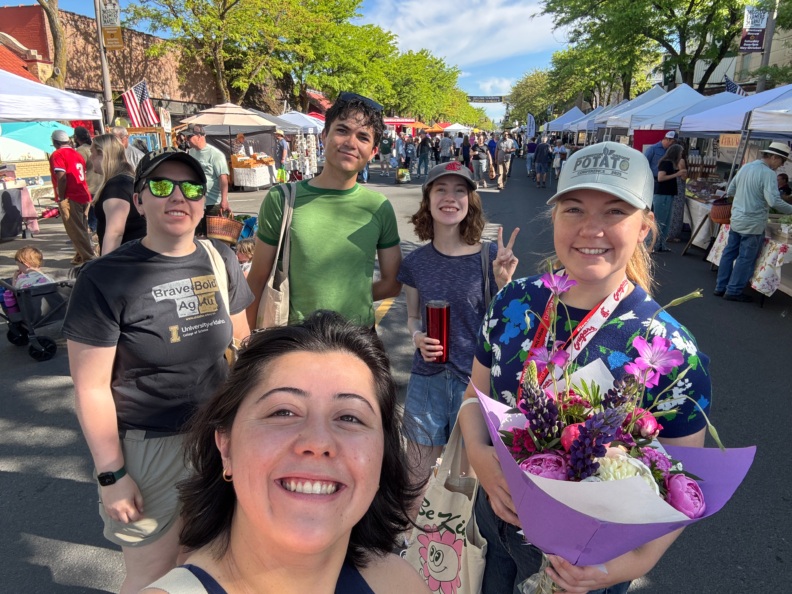
Is there something you wish more people knew about Food Science or Dairy Science?
I think the biggest thing is that science is not cooking. Cooking is an art of its own. Food science is the biology and chemistry of it all, and cooking is the mastery of the art of creating food. It’s creating the new ideas, it’s having to solve problems like “how do we make this on a large scale rather than just in the kitchen?” I think it’s something that I wish more people realized.
There are a bunch of different perspectives in the field. If you love agriculture and want more of an office job, food science is a good place to be. If you don’t want to commit to having to do research on a regular basis, you can manage food plants, ensure food safety, and participate in extension work. You could do all of these things that people don’t usually associate with food science.
Looking ahead, what are you hoping to do after you graduate?
My plan is to go enjoy industry. I’m going back to that 40-hour work week. I didn’t realize how much I missed that after working it. You get up, you go to work, you deal with work, and then when 5 o’clock hits, you go home and work is work and home is home. I am looking forward to just going back to that. I’m also really looking forward to having more of my own time back and having the money to travel. My sister and I have talked about road tripping across the U.S. and checking out the National parks. One of my good friends and I have talked about going through Europe and backpacking as well.
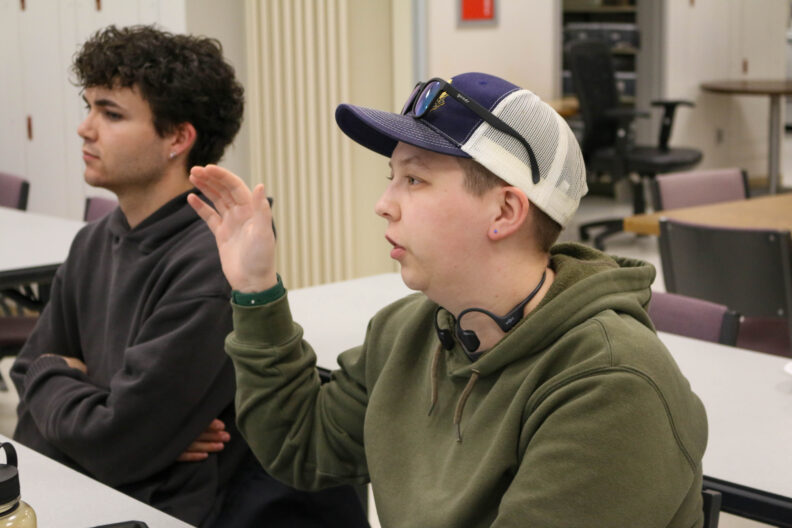
In industry, I want to go into either technical services or yield optimization. Technical services is the people who get called when you’ve sold a product to a company and that company’s going, “okay, this isn’t working, what do I do about this?” You’re just the problem solver department, and I’ve always been drawn to problem solving. With yield optimization, it’s more like, “we have this plant, but how do we make it run more efficiently? How do we reduce our waste that we’re generating? How do we get the most out of our products?” It is a growing field; a lot of plants are just starting to integrate those yield optimization roles. It’s more on the engineering side, but I’d be lying if I didn’t say I wanted to use my engineering mind still. As for companies and where in the world, who knows? I’ll see where life takes me after my master’s degree.
Any advice for undergraduate students looking to pursue a graduate/doctorate degree?
I think the biggest thing that I have said time and time again is knowing the purpose behind why you’re getting the graduate degree. I think a purpose isn’t just, “well, my paycheck will be better at the end of it.” Graduate school is not all sunshine and rainbows, so it is important to have a purpose you believe in. There’s a lot of time where you’re frustrated, you’re tired, you’re exhausted, you’re sick and you’re bored. Every ounce of your body is fighting to be there. Then you’re asking yourself why? Why am I here? Why does this matter? The purpose that you can go back to keeps you grounded and motivated through all of it. Before you even start to reach out to faculty and look at schools and programs, figure out why you want to go to grad school. Once you’ve truly found the reason, don’t commit to the first offer you get. Truly stop and think about where you’ll be happiest overall.
Any parting words?
One of the biggest things I’m thankful to experience during graduate school is teaching. A lot of times in undergrad, you’re really lucky if you get to teach a class. I was fortunate enough to have the opportunity to teach two sections of human anatomy and physiology lab at the University of Idaho during my bachelor’s degree. I did all of my own prep work, wrote my own quizzes and exams, executed my own activities, and taught the content. As much as we talk about research and going to conferences, take any opportunity you get to teach in graduate school, whether that’s for a lab or helping your major professor with one of their classes. The more experience you have teaching makes it easier to give those presentations on your research. It helps you learn how to break down complex subjects into a manner that is understandable to a constituent who has no background in the subject area.
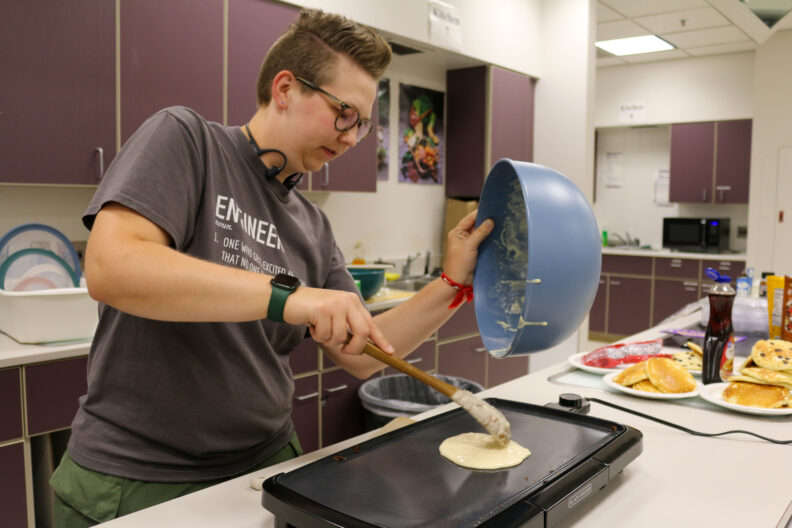
I think we as researchers and scientists end up in our own little world, and we forget that’s not where most of the population is. Learning how to take complex topics that you know well and sharing it in a digestible manner to the common public is important. When you go to apply for that first job and they ask, “tell me about your research project,” it’s likely a someone interviewing you that has no background in your research and may not even have the educational foundation to understand the nuances of your project. You need to be able to explain your research to them to move through the hiring process.
I was thankful for the opportunities I had to teach, both in FFA and in undergrad; these experiences really gave me that foundation. Now, in grad school, I can take this really complex topic about my research and make it digestible to a middle or high school grader. Take those opportunities, learn from them, and ask how you can do better each time. An open mind to improve makes all the difference and will set you up for greater success.